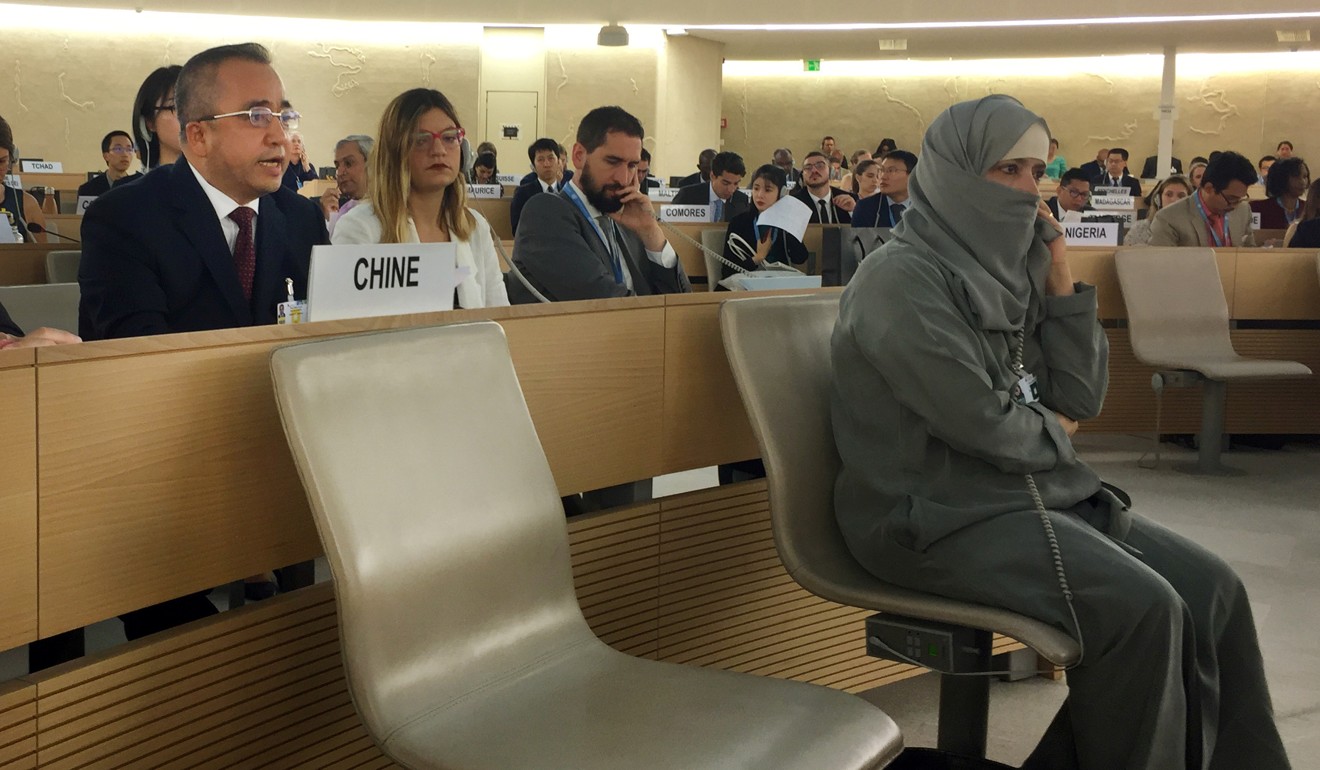
Xinjiang camps defended at UN human rights forum
- Vice-governor Erkin Tuniyaz responds to international criticism of internment centres
- Terrorism and religious extremism in region now ‘effectively contained’, UN told
Xinjiang vice-governor Erkin Tuniyaz told the UN Human Rights Council on Tuesday that state-run detention camps in the far western region of China were vocational centres that had helped to “save” people from extremist influences.
He was responding to international criticism in an address which, diplomats said, was an effort to head off any censure at the three-week session, which began on Monday.

UN experts and activists say that at least one million ethnic Uygurs and other Muslims are held in the detention centres in Xinjiang. China describes the facilities as training centres helping to stamp out extremism and give people new skills.
Tuniyaz, who is Uygur, told the Council China had now effectively contained terrorism and religious extremism in Xinjiang.
“By setting up vocational education and training centres in accordance with the law, we aim to educate and save those who were influenced by religious extremism and committed minor legal offences,” he said.
“This will prevent them from becoming victims of terrorism and extremism and to protect the basic human rights of the citizens from infringement.”
UN human rights chief Michelle Bachelet told the forum on Monday that she continued to raise issues related to Xinjiang, including “unfettered access” to the region, and other matters with China.
Tuniyaz said freedom of religious belief was protected by law in Xinjiang, a multi-ethnic region of 25 million people where various religions coexist. But religious extremists had disseminated “sinister preachings” in Xinjiang, leading some to act like “drug addicts”, he said.
“Xinjiang has placed fundamental interests of the people of all ethnic groups first, cracked down on violent terrorism crimes and emphasised taking preventive counterterrorism measures and addressing the root causes of extremism,” he said.
UN security was reinforced at the meeting, where Tuniyaz was accompanied by more than a dozen Chinese diplomats.
After the speech, Sarah Brooks of the activist group International Service for Human Rights, said : “We should be clear that what is happening in Xinjiang is the wholesale destruction of a minority people and a culture, from the razing of religious sites to the separation of families, incentives for intermarriage, and the imprisonment of more than 350 academics and intellectuals.”
Dolkun Isa, president of the exiled World Uygur Congress who led a protest in Geneva on Monday, accused China of “hiding the reality of what is happening to Uygurs”.
“He [Tuniyaz] is not representative of the Uygur community,” Isa said.

